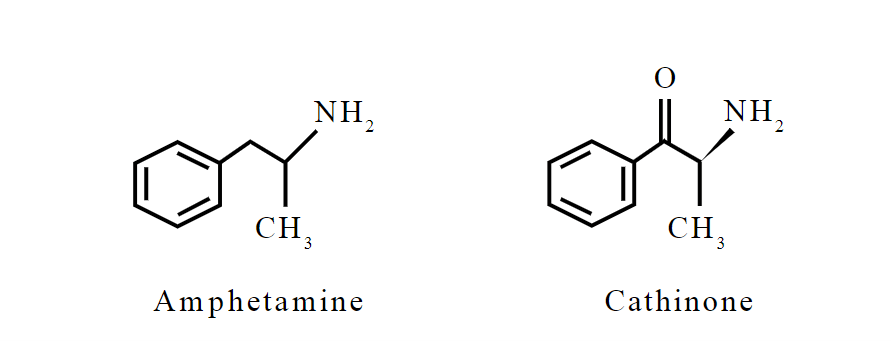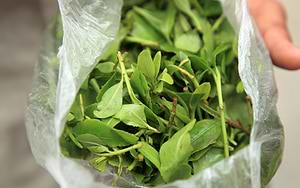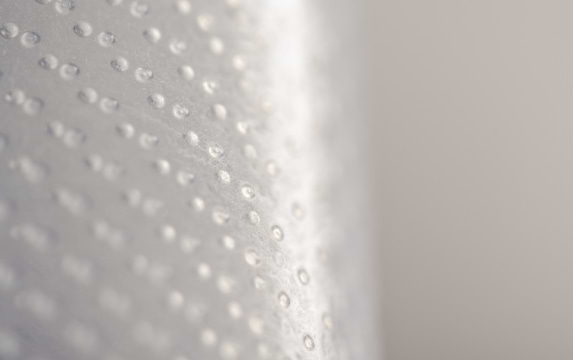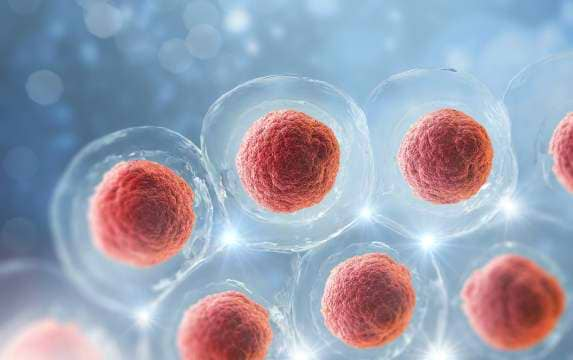Khat (Catha edulis) is a plant commonly used in Yemen and Ethiopia that acts like an amphetamine – a stimulant drug that activates the nervous system to respond in the same way as in threatening and dangerous situations. Many claim it influences the sexual drive and the erectile function, but is it true?
Khat is a tree mainly cultivated in some regions of East Africa, in the Arabian Peninsula and parts of the Mediterranean. Khat leaves chewing is tied to social and cultural traditions dating back thousands of years, which are associated with the psychoactive substances the leaves contain. It is currently estimated that about twenty million people worldwide, including in Israel, use khat. However, there are no well-controlled clinical trials to support any of its common uses.
How does Khat Affect People?
Khat is a psychostimulant, meaning it acts as a stimulating drug with a psychoactive effect. Its influence is mainly attributed to a substance called cathinone, and to a lesser extent to its metabolites cathin and norephedrine. Cathinone belongs to a class of plant compounds called alkaloids, and is structurally related to amphetamine – a stimulating drug that enhances cognitive function, alertness and attention. Therefore, khat is sometimes referred to as a ‘natural amphetamine’ (See illustration 1). However, cathinone is unstable in the presence of oxygen and undergoes decomposition reactions a few days following harvesting or during drying. For this reason, it is customary to chew the fresh leaves to get cathinone in its most potent form.
Illustration 1 – the structural similarity between cathinone and amphetamine 
Cathinone reaches the circulation 15-45 minutes after chewing the leaves. Its effect may last 4 to 6 hours (depending on the amount consumed) though it is detectable in the blood up to 24 hours from consumption. From the circulation, cathinone reaches the brain, where it acts as a sympathomimetic agent, meaning it activates the sympathetic nervous system (the part of the autonomic nervous system that kicks in during stressful situations) to respond in the same way as in dangerous, stressful circumstances. Cathinone causes the release of stimulating neurotransmitters in the brain, such as dopamine, noradrenaline and serotonin, causing various acute effects, such as a feeling of well-being, joy, excitement, a sense of euphoria, increase in self-confidence, energy levels, mental alertness, talkativeness, creative thinking, concentration and locomotor activity, etc.’. However, the plant also has multisystem effects (on the cardiovascular, respiratory, endocrine, digestive and urinary systems) and it is known to cause increase in blood pressure, heart rate, the narrowing (vasoconstriction) of the coronary arteries, suppression of appetite and sleep problems.
The initial stimulating effect is normally followed by a phase often described as inner stillness and contemplation. When the active constituents leave the bloodstream entirely, moodiness might follow, coupled with restlessness, insomnia, and sometimes even depression and paranoia.
Does Khat Influence Male Sexual Function?
Before we get into the details of khat and sexual function, it’s important to note that the research is still very limited, sometimes research results are mixed, and therefore the subject is considered controversial. Notwithstanding the foregoing, it appears that men who consume chronically moderate-large amounts of khat might experience erectile dysfunction, possibly because of its effect on the cardiovascular and endocrine systems.
One of the studies explored data from questionnaires submitted by a sample of Saudi-Arabian men, regarding the reasons for khat initiation, continuance, and cessation, as well as the health and social consequences of its use. The results showed that some participants (7/47) reported disturbed marital relations and poor sexual relations which were mainly in the form of erectile dysfunction, with some men experiencing ejaculations without erections (spermatorrhoea). Three of the quitters decided to quit before getting married and noted that the adverse sexual effects of Khat were prevalent. Generally, one of the two most pressing reasons for quitting khat use was the negative impact on sexual function.
From a review of research findings (2003) on the effects of khat chewing on reproductive functions, it appears that regular khat chewing lowers libido in humans and may also lead to sexual impotence. The authors concluded that khat has a negative impact on human reproductive health, sperm production and blood testosterone levels. Other literature reviews that were published throughout the years indicate similar results: high amounts of khat consumed long-term might gradually undermine libido and erectile function and induce spermatorrhoea and reduced testosterone levels [1, 2 , 3].
The Effects of Khat on Male Reproductive Factors
Some studies in animal models show that regular and heavy khat consumption might negatively affect male fertility. For example, in one study male baboons received a high dose of khat. Sperm and hormonal analysis were conducted weekly during one month of consumption as well as two weeks after the last dose of khat. The results suggested that khat’s high dose decreases sperm quality and testosterone levels, and the authors concluded that it might contribute to male infertility.
In a review article about the harmful effects of khat, spermatorrhea, sperm cell malformations, impotence and reduced libido were reported. In addition, two small clinical studies examined the influence of chronic khat consumption on semen parameters in men. In both studies, it was established that khat addicts had a reduced semen volume, low sperm count and reduced sperm motility, along with an increase in the number of abnormal sperm.
On the other hand, a later study which examined the effects of the compounds cathine and norephedrine on mouse and human sperm, showed they were capable of stimulating the final stage of sperm maturation (capacitation). In other words, they improved the sperm’s ability to fertilize the egg (4). However, more studies supporting these results are warranted.
Common Side Effects Associated with Khat Use
Chronic khat use is associated with an increased risk of a variety of medical complications:
- Although khat chewing initially enhances cognitive function, chronic use might cause impairments in working memory and speed of information processing.
- The astringent effect of the tannins compounds can irritate the gastric mucosa leading to inflammation. Thus, chronic consumption is related to inflammation of the mouth, esophagus and stomach (gastritis), acid reflux and heartburn, increased thirst and constipation – problems that many users report. Khat may have detrimental effects on the salivary glands, cause tooth loss and white lesions on buccal tissues.
- Mental health conditions associated with chronic khat use have been documented, including psychosis, depression, mood swings, hallucinations, rage attacks and violent behavior.
- A significant rise in systolic and diastolic blood pressure and pulse rate, which carry a risk of a cardiac event in susceptible individuals
- Urinary bladder problems and poor urine flow
- Disturbance in liver function and structure
- Abnormal daily stress hormone (cortisol) profile, which might manifest in hypo-responsiveness to stress
- Appetite suppression and anorexia
In addition, it appears that khat may induce a persistent psychological dependence. Withdrawal symptoms after prolonged khat use include lethargy, depression, trembling, recurrent bad dreams and occasionally hallucinations.
The Company hereby clarifies that the information contained on the website is for informational purposes only, and is not intended to be a substitute for professional medical and healthcare advice, and does not constitute medical advice or opinion. Always seek the advice of your physician or other qualified health provider with any medical condition or question you may have regarding a medical condition.





